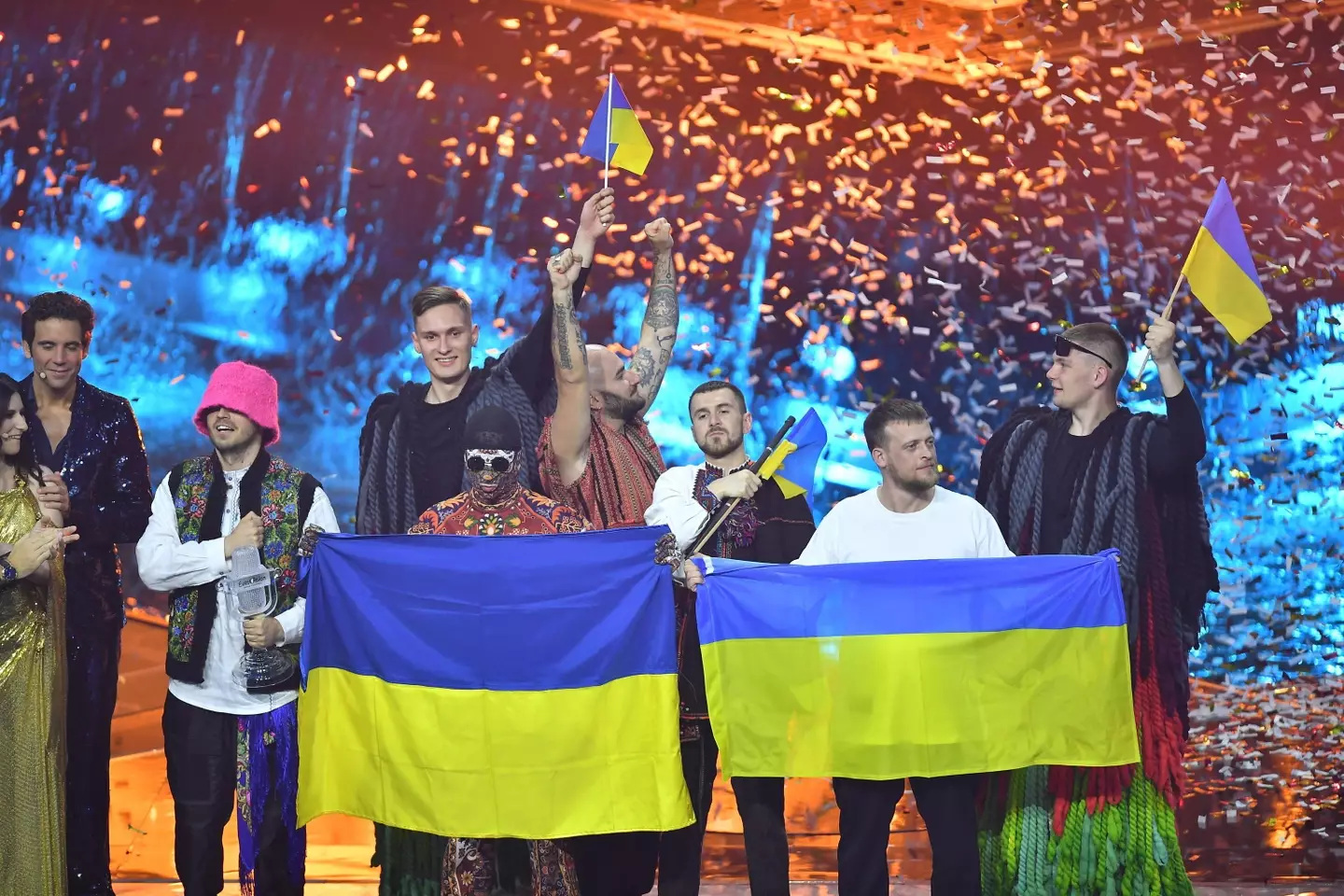
Pro-Russian hackers tried to sway the vote in the Eurovision song contest, according to Italian police.
On Saturday, 14 May, rap group Kalush Orchestra, who represented Ukraine, took home the crown in the Eurovision song contest.
Russia was banned from the competition following President Vladimir Putin sending troops across the border into Ukraine on 24 February in what he called his 'special military operation'.
Advert
However, that didn't stop pro-Kremlin hacker group Killnet reportedly trying its best to disrupt the vote.

Italian police have claimed the hacking group targeted not only the first semi-final round of the singing contest, but also the grand final on Saturday.
A police statement, as reported by the BBC, read: "Various computer attacks of a DDOS [distributed denial-of-service] nature aimed at network infrastructures during voting operations and singing performances were mitigated."
Advert
A spokesperson for Italy's postal police told The Times that 100 police IT experts helped fend off the attack: "Killnet announced the attack on its Telegram channel but we were ready, and able to rebuff it. The first attempt was made on Tuesday during the semi-final and peaked during the Ukrainian performance.
"During the final on Saturday they tried all day to block the streaming and the voting but our firewall held."
Kalush Orchestra received a total of 631 points, with the UK's Sam Ryder coming in second with 466. The points were collected from viewers as well as national juries from six countries across the globe.
Advert
However, organisers later said they had discovered there were 'irregular voting patterns' among the juries, with the countries' votes replaced with scores calculated using voting records from other countries as 'a substitute aggregated result' as opposed to the individual country's actual score.
The national representatives set to read the jury scores for Azerbaijan, Romania and Georgia were also replaced, with Martin Österdahl – Eurovision's executive supervisor – reading out the scores instead.
Eurovision organisers released a statement following the news, explaining: "In the analysis of jury voting by the European Broadcasting Union's (EBU) pan-European voting partner after the Second Dress Rehearsal of the Second Semi-Final of the 2022 Eurovision Song Contest, certain irregular voting patterns were identified in the results of six countries.
"The EBU takes any suspected attempts to manipulate the voting at the Eurovision Song Contest extremely seriously and has the right to remove such votes in accordance with the Official Voting Instructions, irrespective of whether or not such votes are likely to influence the results and/or outcome of the voting."

As well as Killnet being accused of trying to hack into the voting system and manipulate the results of the contest, Russian journalists have also spoken out against Ukraine's Eurovision win.
Advert
Columnist Vladimir Polupanov called the show 'fake' and 'boring politicised television'.
Meanwhile, journalist Yuliya Vityazeva even responded by suggesting Russia 'bomb' Ukraine with one of the country's latest weapons.
UNILAD has contacted the EBU for comment.
If you would like to donate to the Red Cross Emergency Appeal, which will help provide food, medicines and basic medical supplies, shelter and water to those in Ukraine, click here for more information
Topics: Russia, Ukraine, Film and TV
